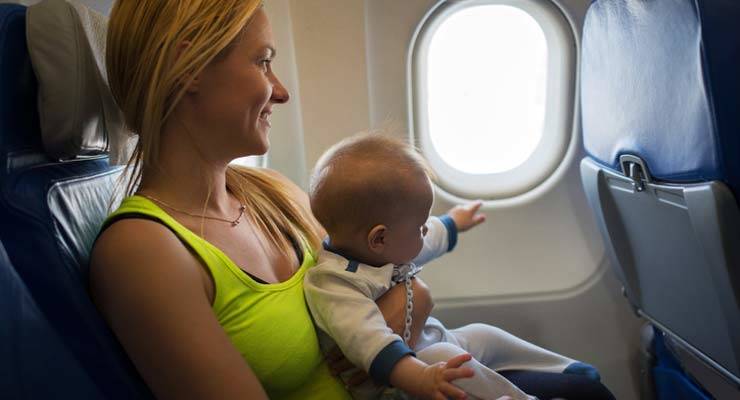It’s difficult to tell how your baby will react to high altitudes. Some babies handle plane trips and high-altitude destinations with no problems at all. Some have mild ear-pressure related discomfort. About 25 percent will experience will experience altitude sickness, according to the American Academy of Pediatrics. The key to getting your baby to sleep under these conditions is to keep him comfortable and try to regulate the pressure in his ears.
Step 1
Wait to travel by plane or to a high altitude location until your baby is older than 3 months old, according to pediatrician Suzanne Dixon, writing for Baby Center. Talk to your doctor about when it’s safe to fly or travel to a high altitude location if your baby was premature or suffers from lung or heart problems.
Step 2
Wrap your baby in extra blankets or dress him warmly. Temperatures are typically cooler at higher altitudes and your baby is more likely to sleep at a comfortable temperature.
Step 3
Offer your baby your breast, a bottle or a pacifier as you make your initial ascent. Your baby lacks the ability to yawn or chew to regulate ear pressure like you do and may get fussy. Sucking is the best remedy for this problem. Once your ears have popped and returned to normal pressure, you can assume your baby’s have, too.
Step 4
Feed your fussy baby even if it isn’t time for a scheduled feeding. You’ll need to provide him with more breast milk or formula to compensate for increased fluid needs at high altitudes. This will help keep your baby satisfied and hydrated enough to sleep well.
Step 5
Call your pediatrician if your baby shows signs of altitude sickness, such as fussiness, poor appetite and vomiting and a general sense of irritability or discomfort. You may have trouble getting him to sleep if symptoms persist. Care for your baby as if he had a cold or flu as long as his symptoms remain mild.





